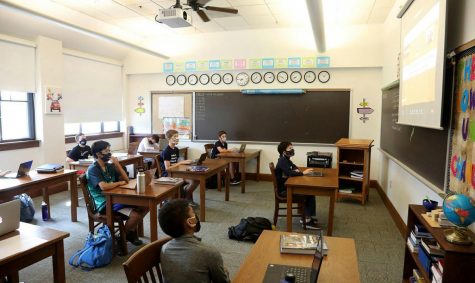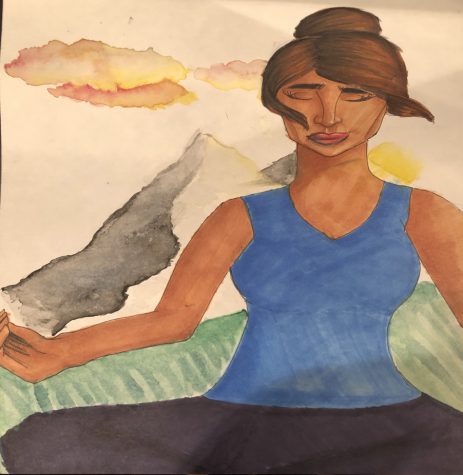Getting Outside
December 27, 2020
Over the course of quarantine, there has been an undeniable increase in a student’s screen time. A combination of six to seven-hour Zoom classes, mixed with an influx of facetime calls and emails that has already had a huge impact on the hours being spent staring at a blue-light screen. For some, lack of social interaction has caused various changes to their mental wellness. From continuous declines in motivation to excruciating boredom, psychological symptoms of isolation have led to even more screen time consumption. “For millions of Americans struggling with isolation or depression, screens are a path for healing,” notes the Washington Post. When asking students how their screen time on their phones has evolved over the past few months, answers ranged from 2-5 hours, 4-7 hours, even a whopping 5-11 hours. In today’s circumstances, much of a student’s screen time usage is inevitable, but there are definite consequences to this overuse of technology. Studies from Harvard Medical School have shown that blue light-emitting screen devices can disrupt sleep patterns, and when asking students about their current relationship with Zoom and their phones, the general consensus was that overuse of technology led them to feel sluggish and unproductive. “I would describe my state after seven hours of Zoom calls as the Tik Tok sound that says ‘I feel like I’m dead, I’m alive but I’m dead,’” says Emily Doucette (‘24), a student who lives in Wisconsin and attends school fully virtually.
To combat this technological fatigue, some are trying to keep busy with extracurriculars like sports or clubs, while others force themselves to set time aside in order to get fresh air, and some setting restrictions for themselves on their devices. “What helped for me is to put electronics I don’t need in a different space,” said Grace Schaefer (‘21), “that way I wasn’t distracted and allowed myself to set boundaries.” Grace is a senior this year, and with college looming near, creating healthy habits is incredibly important for her work ethic. Another student shared that in order to keep their mind clear, they went for a four mile run after Zoom classes every single day. While most would rather not subject themselves to a four mile run after a seven hour school day, getting outside in general is a very effective method of unwinding, not to mention beneficial to one’s health. Harvard Medical School encourages people who are inevitably exposed to long periods of blue light to spend time around bright lights- most conveniently sunlight- during the day. This exposure can help boost your ability to sleep at night, as well as improve your mood. Even doing something as simple as taking ten minutes to just breathe some fresh air can improve your mental drive and alleviate some of the undeniable stress that comes with school, Covid-19, upcoming finals, and countless other personal commitments.








